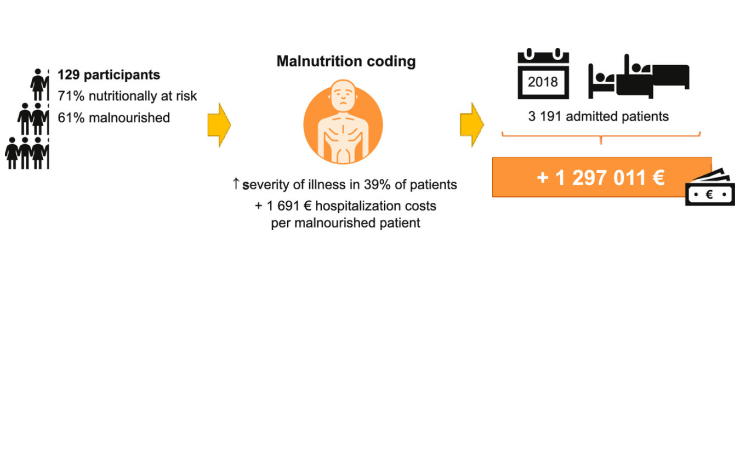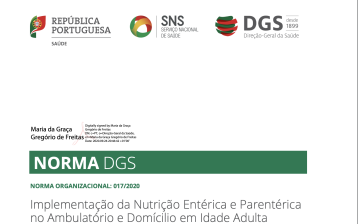
Does malnutrition influence hospital reimbursement?
A new Portuguese cross-sectional study was published, which aimed to determine how the malnutrition diagnosis influences the potential hospital reimbursement for patients admitted to an internal medicine ward.
Nutrition, June 2020
Does malnutrition influence hospital reimbursement? A call for malnutrition diagnosis and coding.
Read articleMajor findings:
- Malnutrition is highly prevalent in patients admitted to the internal medicine ward: 71% (n = 92) of participants were at risk of malnutrition (≥3 points). Of these, 86% (n = 79) were malnourished: 67% (n = 53) had moderate/suspected malnutrition (PG-SGA B) and 33% (n = 26) were severely malnourished (PG-SGA C).
- Diagnosing and coding malnutrition may help to compensate for the costs associated with malnutrition by increasing hospital reimbursement.
- Diagnosing, coding, and treating malnutrition has an obvious clinical benefit for malnourished patients and for the hospitals by increasing hospital revenue.
- In Portugal, diagnosing and coding malnutrition increased severity of illness in 39%.
- This resulted in an estimated increase of hospitalization cost of €1.3 million/year.
The inclusion of the highly prevalent malnutrition diagnosis in medical records increases calculated hospitalization cost, increasing the potential hospital reimbursement, which may indirectly contribute to the quality of patient care and to the economic sustainability of hospitals.
Future studies should aim to determine the cost of screening, assessing, and treating malnutrition to obtain a more accurate financial picture of this problem in Portugal.




